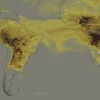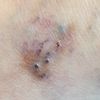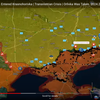Oft kallað undralyf, virðist hafa áhrif á ótrúlegustu sjúkdóma.
Við hugsum, eru þá nanó, micró sníkjudýr sem það drepur líka?
000
https://en.wikipedia.org/wiki/Ivermectin
Ivermectin
From Wikipedia, the free encyclopedia
Ivermectin (/ˌaɪvərˈmɛktɪn/, EYE-vər-MEK-tin) is an antiparasitic drug.[6] After its discovery in 1975,[7] its first uses were in veterinary medicine to prevent and treat heartworm and acariasis.[8] Approved for human use in 1987,[9] today it is used to treat infestations including head lice, scabies, river blindness (onchocerciasis), strongyloidiasis, trichuriasis, ascariasis and lymphatic filariasis.[8][10][11][12] It works through many mechanisms to kill the targeted parasites,[10] and can be taken orally, or applied to the skin for external infestations.[10][13] It belongs to the avermectin family of medications.[10]
William Campbell and Satoshi ÅŒmura won the 2015 Nobel Prize in Physiology or Medicine for its discovery and applications.[14] It is on the World Health Organization's List of Essential Medicines,[15] and is approved by the U.S. Food and Drug Administration as an antiparasitic agent.[16] In 2018, it was the 420th most commonly prescribed medication in the United States, with more than 100,000 prescriptions.[17] It is available as a generic medicine.[18][19]
During the COVID-19 pandemic, misinformation has been widely spread claiming that ivermectin is beneficial for treating and preventing COVID-19.[20][21] Such claims are not backed by credible scientific evidence.[22][23] Multiple major health organizations, including the Food and Drug Administration, U.S. Centers for Disease Control, the European Medicines Agency, and the World Health Organization have stated that ivermectin is not authorized or approved to treat COVID-19.[22][24][25][26]
 | |
 |
000
Egilsstaðir, 04.05.2022 Jónas Gunnlaugsson







Bæta við athugasemd [Innskráning]
Ekki er lengur hægt að skrifa athugasemdir við færsluna, þar sem tímamörk á athugasemdir eru liðin.